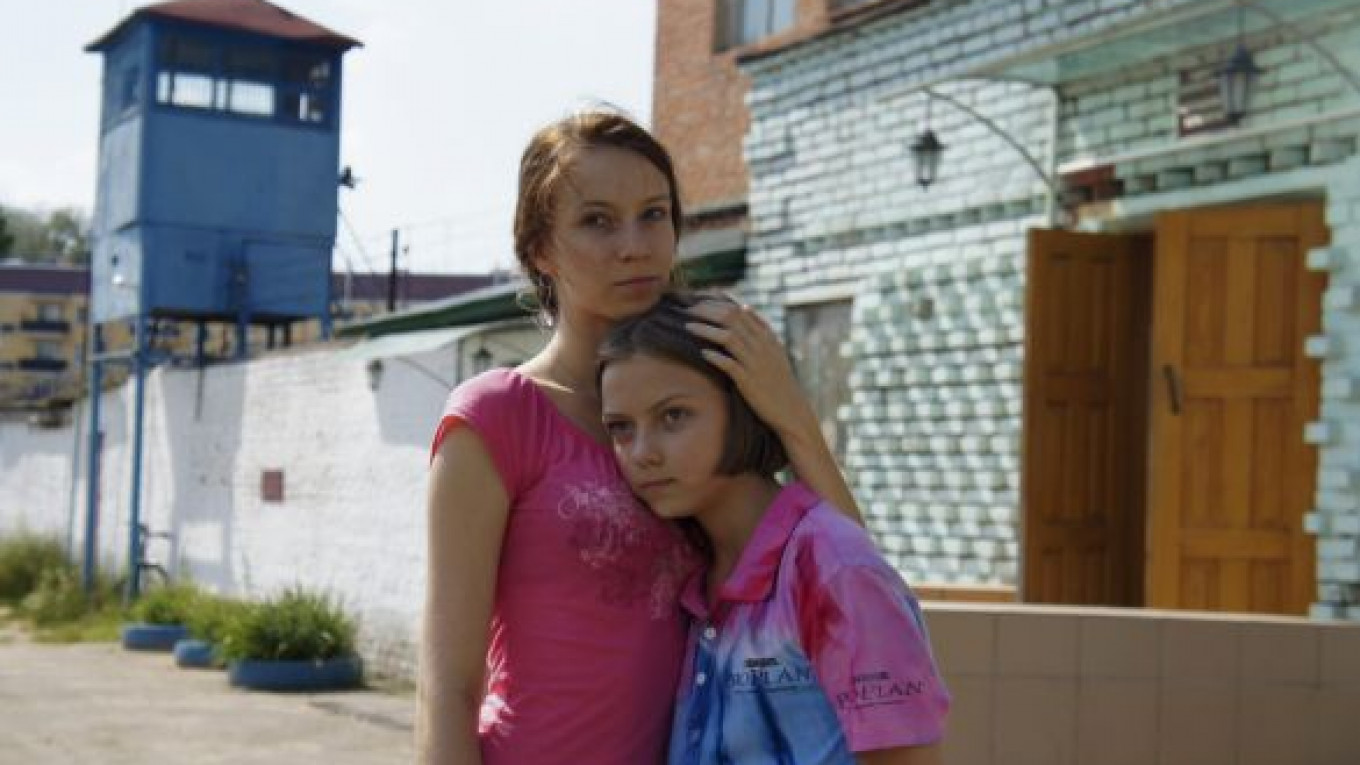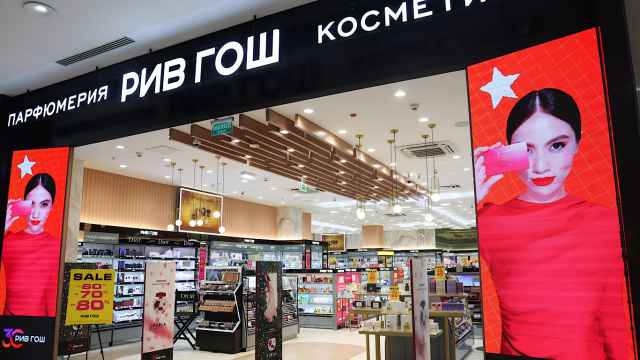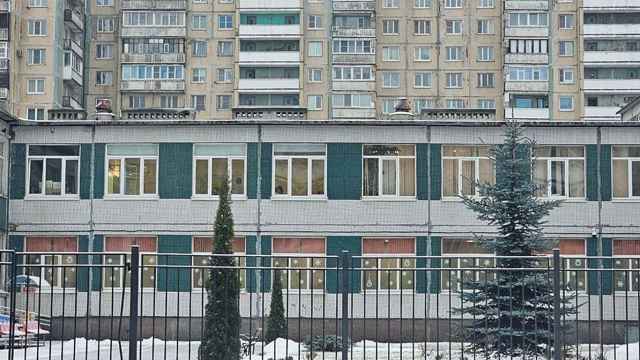Sergei Bobylyov once ran a successful chain of computer shops in Russia called Sunrise. Now, the 43-year-old father of two is serving nine years for fraud in a case his family blames on a corrupt legal system abused by people out to steal his business.
His wife and daughters hope, though, that a six-month amnesty for jailed entrepreneurs, ordered by President Vladimir Putin and signed into law by parliament last week, will set him free.
"We hope very much that the amnesty gives us a chance to free Sergei," said Bobylyov's wife, Oksana. "The amnesty will work for only six months. It is a very short period."
More than 100,000 businessmen, many of whom are innocent, are in prison or face criminal proceedings, according to Boris Titov, hired last year by Putin to protect entrepreneurs' rights.
Under the amnesty, between 3,000 and 10,000 people may be freed, according to official and lobby group estimates.
Critics point out that the amnesty fails to address corruption or tackle flaws in the legal system. Lengthy jail terms are too often handed down in cases that should be settled by civil suits, and judges are too easily bought, with some publishing verdicts direct from the prosecutor's charge sheet — including spelling mistakes, they say.
They also say Putin tailored the amnesty to keep political opponents, former oil tycoon Mikhail Khodorkovsky in particular, behind bars.
Calling it "an act of humanity," Putin announced the amnesty to applause from investors at an investor conference in St Petersburg last month, saying it was vital to create a more business-friendly environment in Russia.
The hostile legal environment has made it hard to succeed in business, legitimately, in Russia. A recent poll by the Levada Center, an independent opinion research group, said 38 percent of entrepreneurs wanted to emigrate.
Rotten Core
At the center of the problem is a legal system in which the collusion of law enforcement and justice officials is widely available, at a price.
"Someone needs to think about the law, and the system of law enforcement, prosecutors and judges, and change it from the bottom up," said Yana Yakovleva of Business Solidarity, a business rights campaigner.
Russia jails more of its population than any other country apart from the United States and Rwanda, international prison statistics show.
As well as long jail terms, business crimes often attract long pre-trial detentions. Asset grabs, even before those accused are convicted, are commonplace.
Khodorkovsky's arrest a decade ago and prosecution for fraud cleared the way for a raft of tax bills against his $40 billion oil firm, Yukos, whose prime assets ended up being nationalized at cut-price bankruptcy auctions.
Political motives are seen as behind some charges. State prosecutors on Friday called for opposition leader Alexei Navalny to be jailed for six years on theft charges. Navalny, who has said the charges are fabricated, has helped order anti-Putin protests and rallied against corruption.
"The court system certainly remains corruptible," said a lawyer who requested anonymity. "You can go to court and get the right decision, but we have very clear cases where we keep getting decisions on appeal that defy logic."
Putin promised during his campaign for a third presidential term to root out corruption and improve business conditions, but, if recent developments are anything to go by, the rule of law in Russia is becoming weaker, rather than stronger.
Court cases can resemble the theater of the absurd. Lawyer Sergei Magnitsky, who died in 2009 after a year in jail aged 37 — possibly beaten to death, according to a presidential human rights commission — is now on posthumous trial.
Magnitsky was detained after accusing security and tax officials of tax fraud.
Entrepreneurs Targeted
Trumped-up charges pressed by corrupt investigators and blessed by judges hark back to repressive Soviet-era justice.
"A lot of people were sentenced because someone wanted their property or their money in corruption schemes," said Titov.
The ombudsman, who led calls for the amnesty, says that more than 13,000 people are locked up under such charges, but that includes real fraudsters behind crimes such as pyramid schemes.
"Many may be innocent," said a second lawyer, who also declined to be named. "Even if they weren't, they were operating in a system where laws were being applied selectively."
While widely applauded by the business community, the amnesty is unlikely to free Khodorkovsky, leading to suspicions that it is commercially inspired political window dressing.
The amnesty would only apply to those who have been convicted once and agree to repay damages. Khodorkovsky was convicted twice of fraud, in 2005 and again in 2010. He is due for release next year, but activity by Russian investigators has stoked speculation that he may face a third prosecution.
Weighing the Cost
With Russia no longer riding high on rising oil revenues, as it did during Putin's 2000 to 2008 terms, stagnant investment has become the biggest drag on its $2 trillion economy.
Jochen Wermuth, of Russia-focused investment fund Wermuth Asset Management, argues that Russian assets are priced at large discounts partly because of the perception of its rule of law.
"In concrete terms, mortgages are high because Russian risk is high, because the legal system doesn't work very well," he said. "Food or coffee is terribly expensive because … you can't fight cartels and the customs system."
Corruption can also dissuade people from starting businesses or inhibit the growth of a firm.
Bernie Sucher, a veteran U.S. financier with more than two decades of Russia experience, said starting up a business is not particularly difficult and can bring great rewards. But problems can start when a business gets too large.
"When you are big enough to be a problem for a competitor incumbent, and if they want to use dirty tactics to repress your growth, upset your momentum, they have much easier recourse to instruments and tactics that can really make your job much harder," Sucher said.
Caged Optimism
For Oksana Bobylyova, fighting the legal system has become a full-time job.
"It's very hard because we don't have money or an ability to work," she said in an interview. "I was a photographer, but I lost the studio. Before, I photographed children and happy families — now I can't. Now, I try to help my husband."
Sergei Bobylyov was charged in April 2010 with fraud for failing to pay suppliers and is serving his sentence close to the Belarus border, where he sees his wife every three months.
In a 2010 article he wrote for Forbes magazine, Bobylyov said the case was pursued because rivals wanted his business, which at its peak had annual sales of $800 million.
Bobylyov had agreed in 2007 to sell 75 percent of the business to a competitor. The buyer ran into trouble during the global financial crisis and banks pulled credit lines, he says.
By Bobylyov's account, unnamed people threatened the business. An Interior Ministry inspection followed. While in jail, investigators asked for bribes to drop the case. The family refused to pay.
The Interior Ministry referred a request for comment on Bobylyov's case to the court that made the ruling. No one at the court was immediately available to comment.
Bobylyov is charged under an article of the criminal code that is not covered in the amnesty, his wife said, but hopes his case will be reclassified to make him eligible for release.
"My father is an optimist; he hopes he will get out of it," said his 20-year-old daughter Alina.
A case like this should never have ended up in a criminal court but in commercial arbitration, said campaigner Yakovleva. "Who wins from this?" she asked. "It's a question of justice."
Amnesty Fact Box
• The scope of the amnesty is narrower than the 50-plus articles originally proposed. It does not include other items in Article 159 (fraud); 160 (embezzlement); and 165 (damaging property by deception).
• The amnesty will last for six months. About 5,000-6,000 people are expected to be released, Alexei Nazarov of business association Delovaya Rossia said at a recent panel discussion.
• Titov estimates that about 13,000 prisoners are in jail for business crimes. Not all of those will be freed as the amnesty will not cover those with multiple convictions.
• Prosecutor General Yury Chaika was quoted by RIA Novosti on Tuesday as saying that about 10,000 entrepreneurs could benefit from the amnesty.
• A Facebook group dedicated to helping people and their relatives charged with article 159 is here.
• An opinion poll published by Public Opinion Research Center in May showed that 33 percent of Russians support the amnesty and 36 percent oppose it.
A Message from The Moscow Times:
Dear readers,
We are facing unprecedented challenges. Russia's Prosecutor General's Office has designated The Moscow Times as an "undesirable" organization, criminalizing our work and putting our staff at risk of prosecution. This follows our earlier unjust labeling as a "foreign agent."
These actions are direct attempts to silence independent journalism in Russia. The authorities claim our work "discredits the decisions of the Russian leadership." We see things differently: we strive to provide accurate, unbiased reporting on Russia.
We, the journalists of The Moscow Times, refuse to be silenced. But to continue our work, we need your help.
Your support, no matter how small, makes a world of difference. If you can, please support us monthly starting from just $2. It's quick to set up, and every contribution makes a significant impact.
By supporting The Moscow Times, you're defending open, independent journalism in the face of repression. Thank you for standing with us.
Remind me later.






